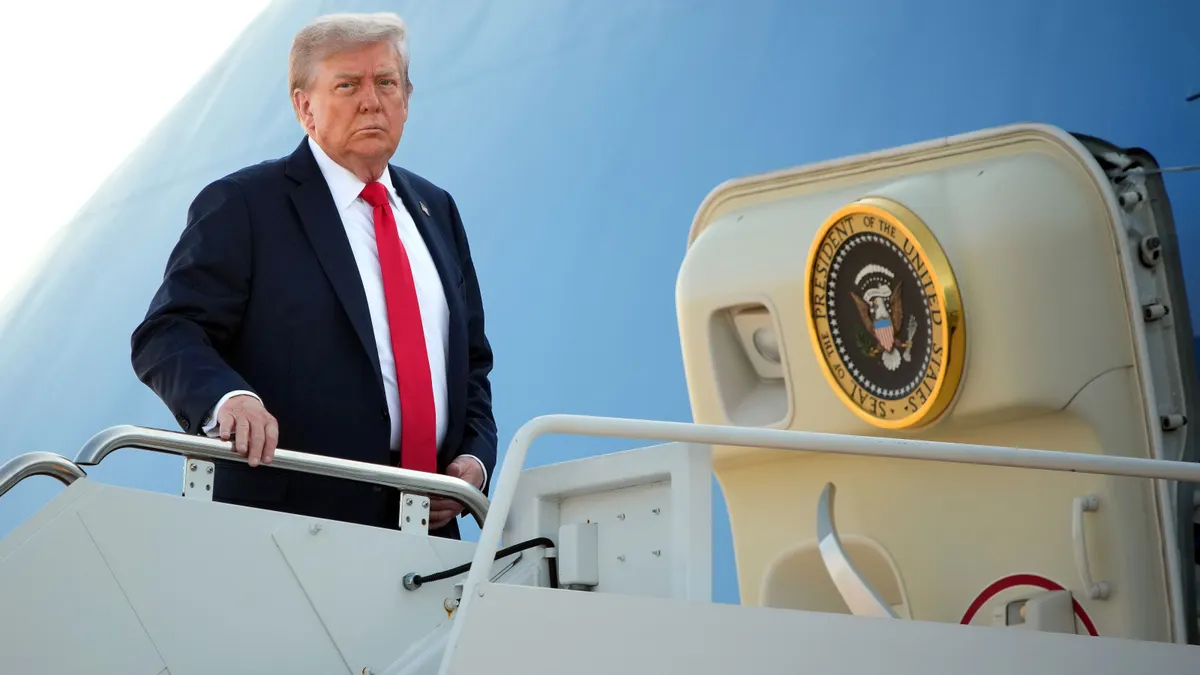The knee-jerk response to the question of whether President Donald Trump has been a boon for payments innovation may be to point to the Genius Act.
After all, he signed that stablecoin bill into law in July, ushering in a first-time regulatory framework for payments by digital assets.
And then there was his payments modernization executive order issued in March, just two short months after taking office. With the stroke of his pen, Trump banished paper checks from the federal government, moving the U.S. further down the path of shifting to digital payments.
Along those same lines, his administration has done away with the penny, which cost more to produce than it was worth.
All of those presidential steps are arguably moving the country in the direction of a more advanced, more efficient, more expedited way of dealing with payments.
Weighing against those actions, though, are the administration’s efforts to shutter the Consumer Financial Protection Bureau. While the federal agency under Trump’s predecessor, President Joe Biden, earned some payments executives’ ire for seeking to impose new regulations on emerging payment services, such as buy now, pay later and earned wage access, the industry may now be left with state scrutiny.
As the CFPB faces potential closure next year, EWA and BNPL are both confronting a patchwork of oversight by the states, forcing companies potentially to adhere to a multitude of varying laws and regulations across the nation.
“In my view, even though there’s different flavors of these state regs, they’re all better than not having any regulation, all of them, each one of them,” Alex Bradford, CEO of earned wage access provider Rain Technologies, told Payments Dive earlier this month.
State oversight may not only make it difficult to be in compliance in multiple jurisdictions, it may increase the costs of complying with differing state parameters.
Also on the negative side of Trump’s ledger is his administration’s stance against open banking, a trend helped along by the Biden administration to put more power back in the hands of consumers with respect to their financial services. A Biden era rule would have increased access to consumers’ financial data, with permission, but now that rule is subject to a rewrite by Trump’s shrunken CFPB.
Fintech trade groups, including those that represent payments players, are howling for the administration to stay on track with open banking, allowing them more wherewithal to compete with larger, incumbent bank rivals in providing financial services. Banks have fought that increased leeway, seeking to impose charges on the fintechs for using the data.
“Imposing fees on consumer data is a direct threat to responsible innovation, competition, and the millions of Americans who rely on responsible fintech tools to manage their finances each day,” American Fintech Council CEO Phil Goldfeder said in a press release last month. The Financial Technology Association also has supported the Biden-era open banking approach.
Now, the CFPB’s policy on open banking is bogged down in a rewrite of the rule, and related litigation. While a CFPB spokesperson said this week that a rule would be written, it remains to be seen what the administration’s reinterpretation will look like.
Siding with banks wasn’t necessarily part of Trump’s plan.
As a presidential candidate, Trump attracted headlines for saying he would consider capping credit card interest rates set by bank card issuers and their card network partners. Despite congressional support for the idea, and a bill introduced by Sens. Bernie Sanders and Josh Hawley, that proposal has made little headway.
On the card front, it will be telling to see how the Justice Department under Trump pursues its antitrust case against Visa, the largest U.S. card network. Under Biden, the department alleged the company has created an illegal monopoly in the debit card market.
For now, the verdict is out on both that case, and Trump’s legacy in the area of payments innovation.














